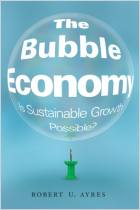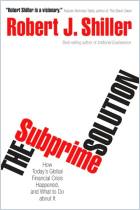Rejoignez getAbstract pour lire le résumé !

Rejoignez getAbstract pour lire le résumé !
Nouriel Roubini and Stephen Mihm
Crisis Economics
A Crash Course in the Future of Finance
Penguin Group (USA), 2011
Aperçu
Nouriel Roubini, a farsighted economist, warns of a wild ride ahead and explains how to calm the waters.
Recommendation
Nouriel Roubini is the rare economist who, in the midst of a speculative bubble, accurately warned that the financial crisis of 2008 was coming. His bona fides established – and his “Dr. Doom” nickname well earned – Roubini and economics professor Stephen Mihm offer an insightful, entertaining look at the history and future of crashes. Get ready, Roubini warns: After a period of relative calm after the 1930s Great Depression, financial markets are in for a wild ride. He expects financial crashes to continue and offers advice for mitigating the damage, such as restructuring Wall Street bonuses and reining in big banks, although you may suspect that his recommendations will go unheeded. getAbstract recommends this book to investors and business leaders seeking a deeper understanding of the markets’ gyrations.
Summary
About the Authors
New York University economics professor Nouriel Roubini founded Roubini Global Economics and served in the White House from 1998 to 2000. University of Georgia history professor Stephen Mihm writes about economics and history for The New York Times Magazine.

























Comment on this summary
"Let Reader Beware of future economic traps